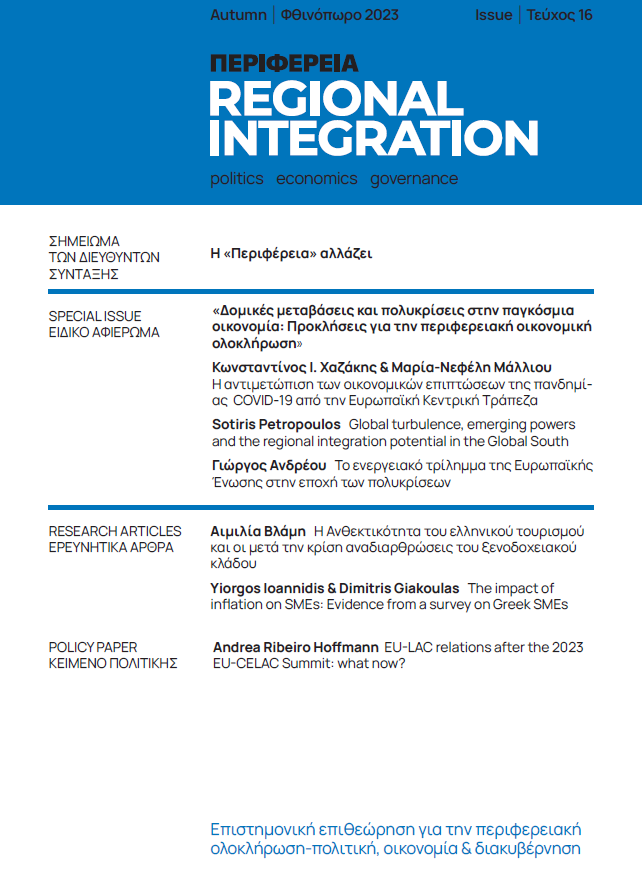Europeanization and the Welfare State in Greece and the European Union during the Covid-19 Pandemic. The Case of the National Health System.

Abstract
The main purpose of this paper is to study and evaluate the efforts to deal with the Covid-19 pandemic in the EU and Greece so as to understand the ability of the Greek health system to deal with such crises. The main questions are: What initiatives have been developed at EU level to deal with the Covid-19 pandemic? Did these initiatives affect the Greek health system? Did the Greek health system manage to face the challenges of the Covid-19 pandemic? As it is argued, both the European and Greek systems have successfully managed to respond to the demands of the Covid-19 pandemic. Several factors contributed to this success, such as, for example, the necessity of dealing with the pandemic, the strict restrictive measures, but also the strengthening of coordination and cooperation at both the European and Greek level. This success in no way implies that there should be complacency. Rather the opposite. The chronic problems that exist primarily in the Greek health system should be successfully addressed in the future. For this reason, there is the necessity, on the one hand at the national level, of the modernization of the Greek health system, and on the other at the European level, the promotion and integration of important and innovative strategies such as the European Health Union.
Article Details
- How to Cite
-
Koulouri, F., & Maris, G. (2024). Europeanization and the Welfare State in Greece and the European Union during the Covid-19 Pandemic. The Case of the National Health System. Perifereia | Regional Integration: Politics, Economics, Governance, 17(1), 65–93. https://doi.org/10.12681/ri.37717
- Section
- Research Articles

This work is licensed under a Creative Commons Attribution-NonCommercial 4.0 International License.
Authors who publish with this journal agree to the following terms:
· Authors retain copyright and grant the journal right of first publication with the work simultaneously licensed under a Creative Commons Attribution Non-Commercial License that allows others to share the work with an acknowledgement of the work's authorship and initial publication in this journal.
· Authors are able to enter into separate, additional contractual arrangements for the non-exclusive distribution of the journal's published version of the work (e.g. post it to an institutional repository or publish it in a book), with an acknowledgement of its initial publication in this journal.
· Authors are permitted and encouraged to post their work online (preferably in institutional repositories or on their website) prior to and during the submission process, as it can lead to productive exchanges, as well as earlier and greater citation of published work.



